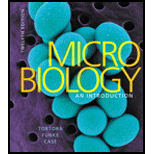
Concept explainers
The koala is a leaf-eating animal. What can you infer about its
To review:
The digestive system of koala, a leaf-eating animal.
Introduction:
Koala is a mammal which mainly survives on a diet of eucalyptus leaves, something that is extremely poisonous to many animals. Eucalyptus leaves are rich in fiber and have a very low nutritional level. Koalas have the tendency to rarely drink water as they absorb the required amount of water from the leaves. Koalas have a specialized digestive system adapted to their unique diet that enables the detoxification of poisonous chemicals present in the eucalyptus leaves.
Explanation of Solution
The Koala’s digestive system consists of the esophagus, stomach, caecum, small intestine, proximal colon, distal colon, rectum, and anus. Caecum is a specialized fiber-digesting organ present in Koalas. Though humans also possess this organ, Koalas have a caecum that is about 200 cm long. This highly voluminous caecum harbors millions of bacteria which facilitate the digestion of fiber into a form that can be easily absorbed. The gut microflora of Koala also aid in the digestion of toxic compounds present in eucalyptus leaves. Deterioration of these unique microbes in the gut has severe effects that essentially make them stop feeding as they would not be able to break down such poisonous compounds.
The extremely developed caecum of Koalas, harboring cellulose-degrading microorganisms, facilitates the survival of Koalas which live on a unique diet of eucalyptus leaves.
Want to see more full solutions like this?
Chapter 27 Solutions
Microbiology: An Introduction
Additional Science Textbook Solutions
Biological Science (6th Edition)
EBK INTRODUCTION TO CHEMISTRY
Chemistry: Structure and Properties (2nd Edition)
Laboratory Manual For Human Anatomy & Physiology
SEELEY'S ANATOMY+PHYSIOLOGY
General, Organic, and Biological Chemistry: Structures of Life (5th Edition)
- What is this?arrow_forwardMolecular Biology A-C components of the question are corresponding to attached image labeled 1. D component of the question is corresponding to attached image labeled 2. For a eukaryotic mRNA, the sequences is as follows where AUGrepresents the start codon, the yellow is the Kozak sequence and (XXX) just represents any codonfor an amino acid (no stop codons here). G-cap and polyA tail are not shown A. How long is the peptide produced?B. What is the function (a sentence) of the UAA highlighted in blue?C. If the sequence highlighted in blue were changed from UAA to UAG, how would that affecttranslation? D. (1) The sequence highlighted in yellow above is moved to a new position indicated below. Howwould that affect translation? (2) How long would be the protein produced from this new mRNA? Thank youarrow_forwardMolecular Biology Question Explain why the cell doesn’t need 61 tRNAs (one for each codon). Please help. Thank youarrow_forward
- Molecular Biology You discover a disease causing mutation (indicated by the arrow) that alters splicing of its mRNA. This mutation (a base substitution in the splicing sequence) eliminates a 3’ splice site resulting in the inclusion of the second intron (I2) in the final mRNA. We are going to pretend that this intron is short having only 15 nucleotides (most introns are much longer so this is just to make things simple) with the following sequence shown below in bold. The ( ) indicate the reading frames in the exons; the included intron 2 sequences are in bold. A. Would you expected this change to be harmful? ExplainB. If you were to do gene therapy to fix this problem, briefly explain what type of gene therapy youwould use to correct this. Please help. Thank youarrow_forwardMolecular Biology Question Please help. Thank you Explain what is meant by the term “defective virus.” Explain how a defective virus is able to replicate.arrow_forwardMolecular Biology Explain why changing the codon GGG to GGA should not be harmful. Please help . Thank youarrow_forward
- Stage Percent Time in Hours Interphase .60 14.4 Prophase .20 4.8 Metaphase .10 2.4 Anaphase .06 1.44 Telophase .03 .72 Cytukinesis .01 .24 Can you summarize the results in the chart and explain which phases are faster and why the slower ones are slow?arrow_forwardCan you circle a cell in the different stages of mitosis? 1.prophase 2.metaphase 3.anaphase 4.telophase 5.cytokinesisarrow_forwardWhich microbe does not live part of its lifecycle outside humans? A. Toxoplasma gondii B. Cytomegalovirus C. Francisella tularensis D. Plasmodium falciparum explain your answer thoroughly.arrow_forward
- Select all of the following that the ablation (knockout) or ectopoic expression (gain of function) of Hox can contribute to. Another set of wings in the fruit fly, duplication of fingernails, ectopic ears in mice, excess feathers in duck/quail chimeras, and homeosis of segment 2 to jaw in Hox2a mutantsarrow_forwardSelect all of the following that changes in the MC1R gene can lead to: Changes in spots/stripes in lizards, changes in coat coloration in mice, ectopic ear formation in Siberian hamsters, and red hair in humansarrow_forwardPleiotropic genes are genes that (blank) Cause a swapping of organs/structures, are the result of duplicated sets of chromosomes, never produce protein products, and have more than one purpose/functionarrow_forward
- Essentials Health Info Management Principles/Prac...Health & NutritionISBN:9780357191651Author:BowiePublisher:CengageEssentials of Pharmacology for Health ProfessionsNursingISBN:9781305441620Author:WOODROWPublisher:Cengage
 Concepts of BiologyBiologyISBN:9781938168116Author:Samantha Fowler, Rebecca Roush, James WisePublisher:OpenStax College
Concepts of BiologyBiologyISBN:9781938168116Author:Samantha Fowler, Rebecca Roush, James WisePublisher:OpenStax College





